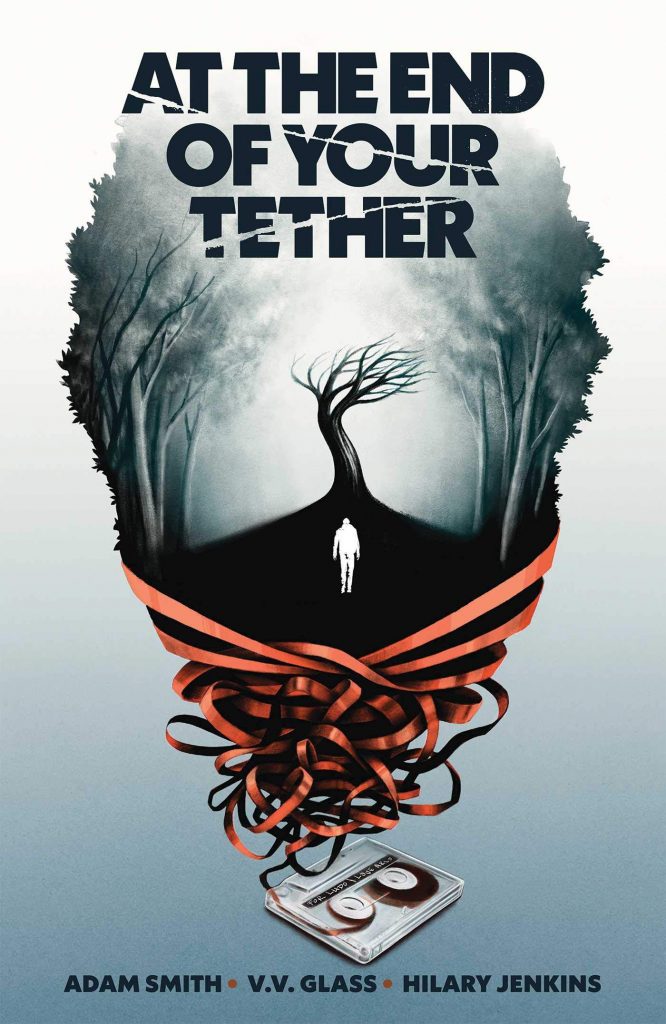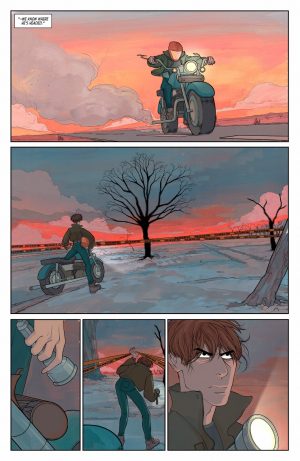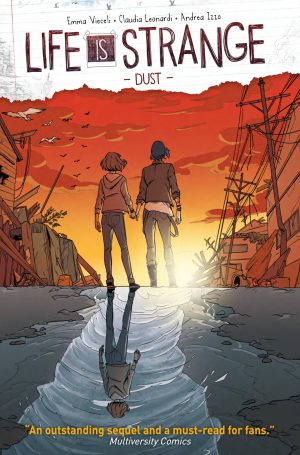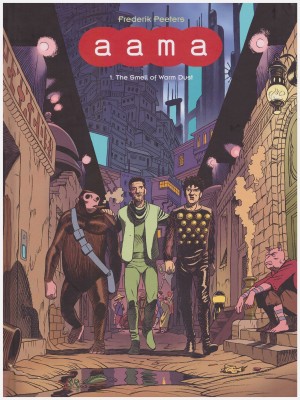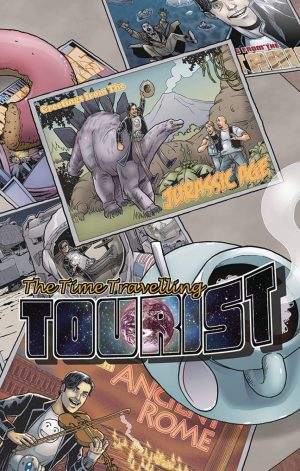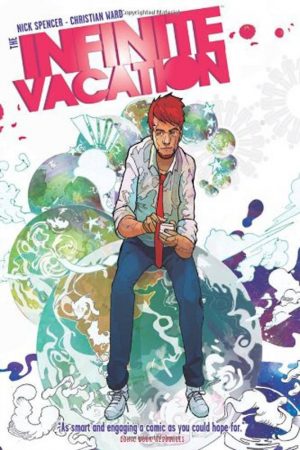Review by Ian Keogh
Adam Smith takes the leisurely approach with At the End of Your Tether so that when the bomb drops it has the necessary effect. We’re introduced to teenage Ludo, whose father runs a motorcycle repair and refurbishment shop and whose mother is military police. We see he gets on with them both, in fact is very protective of them, and when he’s on base at a party he meets Arlo, and gets on with her even better. Ludo knows there’s something missing in his life, but he’s still thrashing around coming to terms with who he is.
The dropped bomb concerns a disappearance, yet there’s something strange about it, as there seems little interest on the part of the local police to carry out an efficient investigation, leaving Ludo to step into his coming of age story. V. V. Glass illustrates this very nicely, presenting believable teens and adults, although his locations are sometimes too empty, a properly crowded bar drawing attention to that. Colourist Hilary Jenkins separates the past from the present via the simple, but effective method of just brightening the colours. Ludo was happier in the past, and that’s more vivid.
A second big surprise awaits, one connected with a seemingly random pontification opening At the End of Your Tether that everyone will have forgotten about. It’s a stunner, moves the story into completely different territory, recontextualises some of what’s already been shown and adds a different kind of sadness. The Time Traveller’s Wife seems to be an influence, and some might feel there’s information that might have been passed on to Ludo before he becomes aware of it, although it’s equally valid that the topic is too big and unusual. Smith doesn’t swerve this awkward contradiction and achieves a viable compromise. Once that door is opened the consequences and possibilities are addressed, this in a pleasingly understated way that ought to resonate.
This is clever, surprising, well drawn, dramatic and unpredictable. Anyone with an open and curious mind about storytelling possibilities should check it out.
